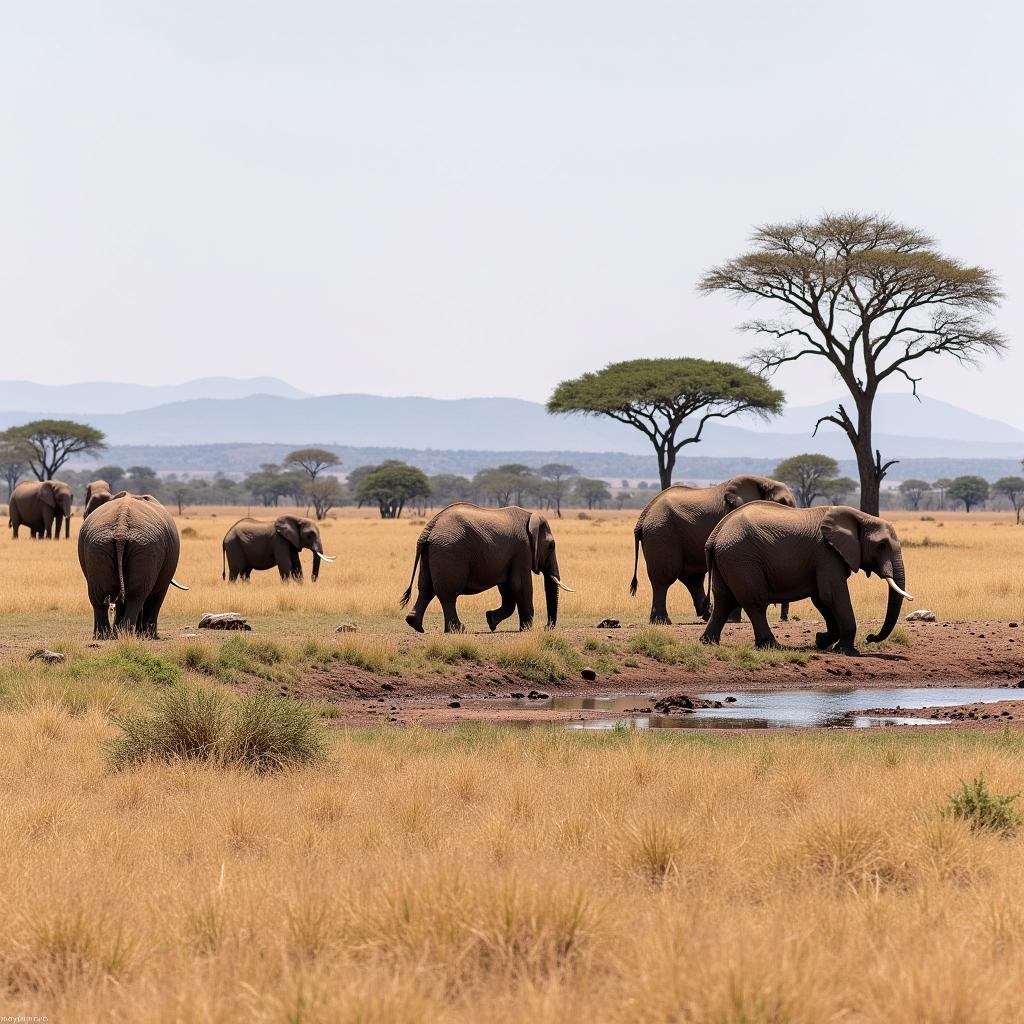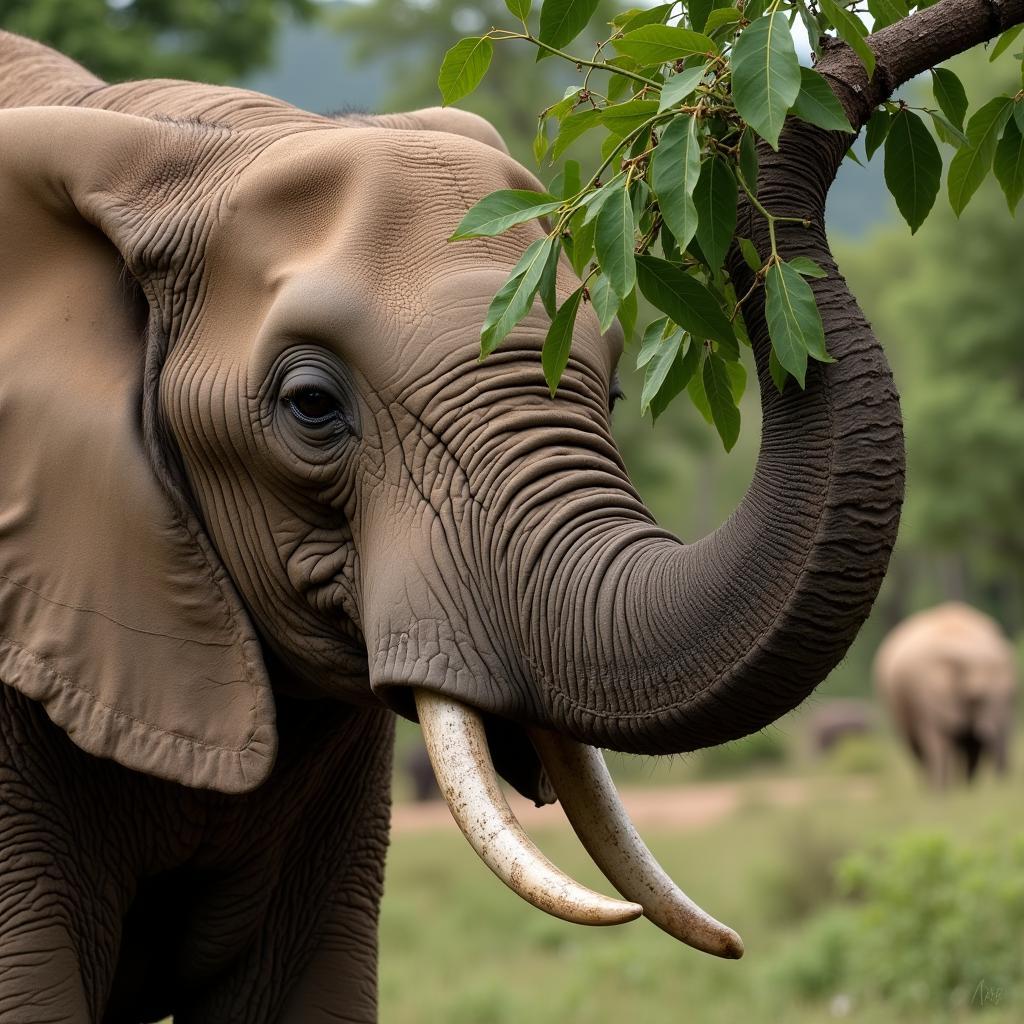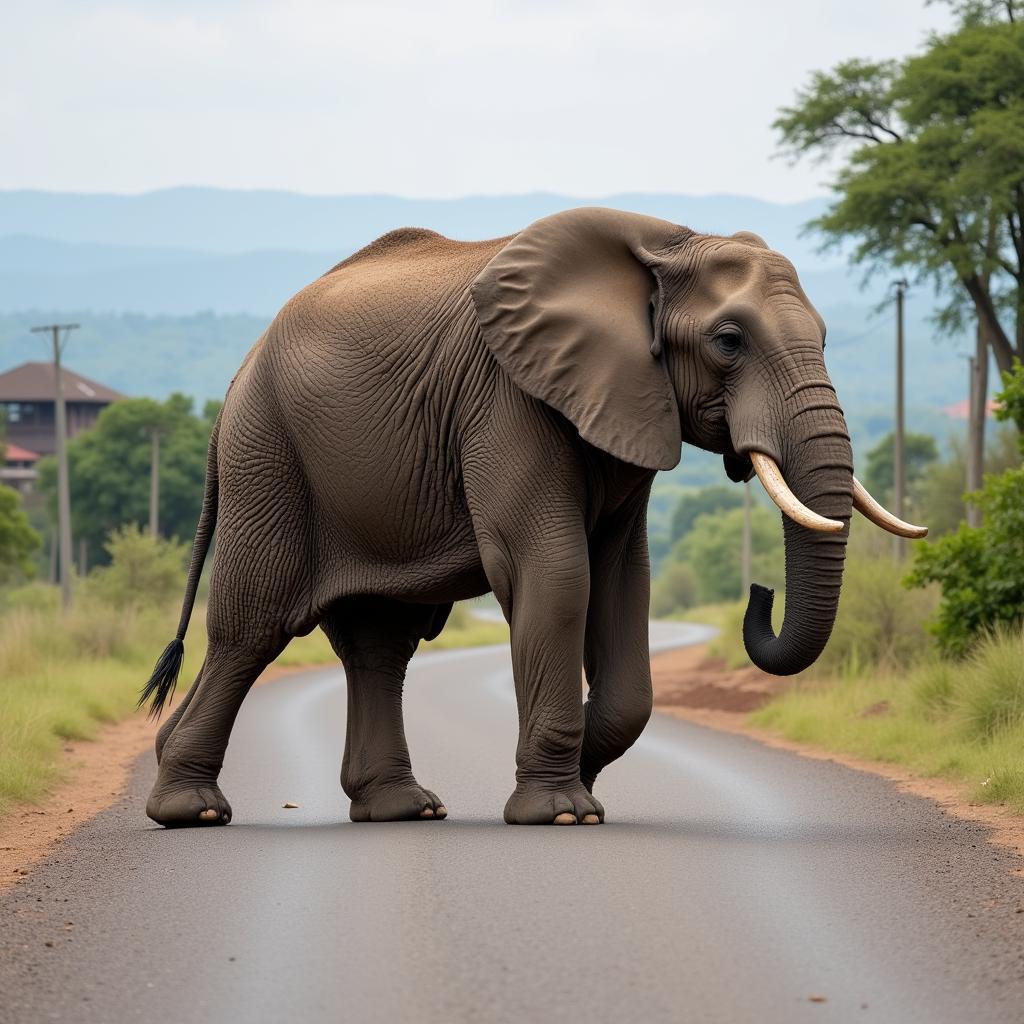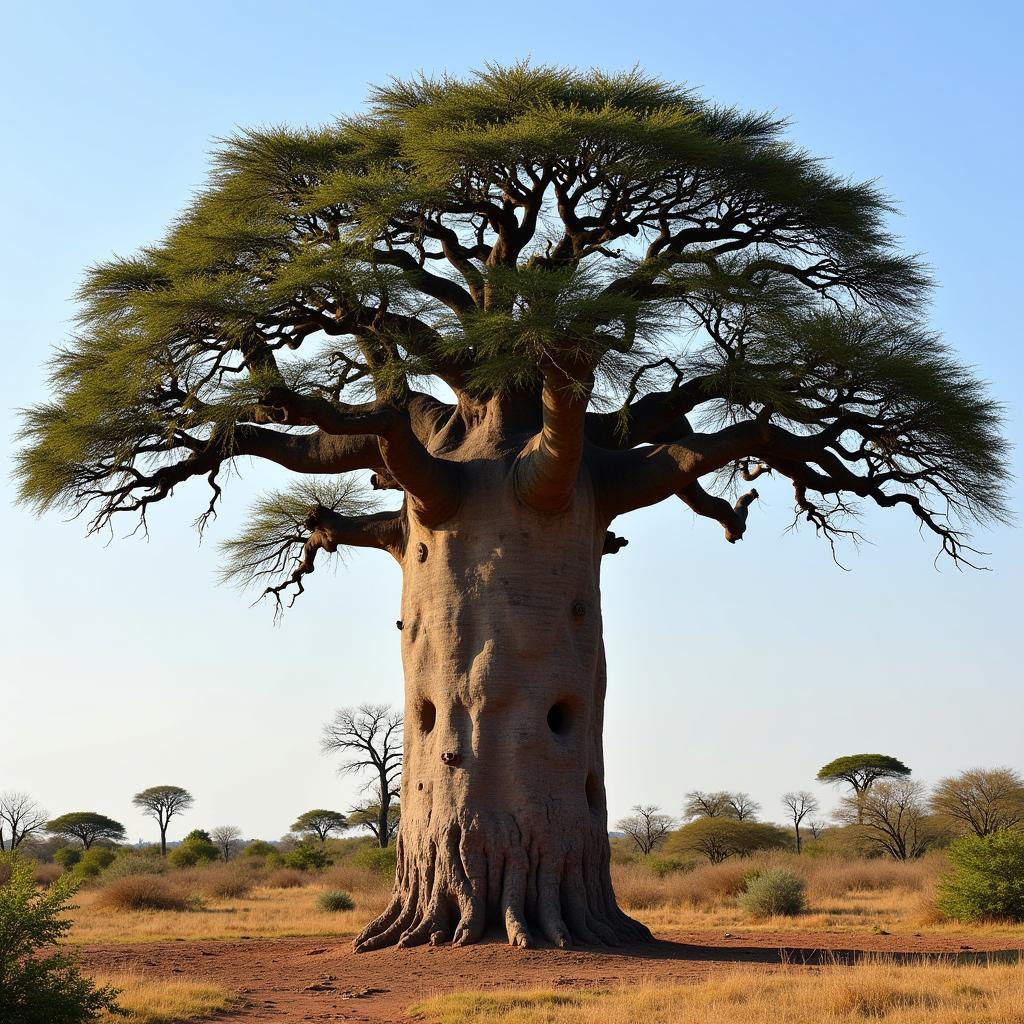African Elephant Environment: A Delicate Balance
The African Elephant Environment is a complex and interconnected web of life. These majestic creatures, the largest land mammals on Earth, play a crucial role in maintaining the delicate balance of their ecosystems. Understanding the challenges and triumphs within the African elephant environment is essential for ensuring their survival and the health of the entire continent.
 African elephant family in savanna habitat
African elephant family in savanna habitat
The Importance of Habitat: Where do African Elephants Live?
African elephants are found in a variety of habitats across sub-Saharan Africa, each with its unique set of resources and challenges. These include savannas, forests, deserts, and even mountainous regions.
Savannas: A Sea of Grass
Savannas, with their vast grasslands and scattered trees, are perhaps the most iconic African elephant environment. These areas offer abundant food in the form of grasses, leaves, and fruits. Savannas also provide ample space for these large animals to roam, with some individuals traveling over 30 miles in a single day.
 African elephant feeding on acacia tree
African elephant feeding on acacia tree
Forests: A Sheltered World
Forests offer elephants a different set of resources and challenges. While food can be more dispersed in dense forests, they provide shade from the scorching African sun and access to fruits, bark, and roots. Forest elephants, a distinct subspecies, have adapted to this environment with smaller bodies and straighter tusks, allowing them to navigate the dense undergrowth.
Deserts: A Test of Resilience
Even the harsh conditions of Africa’s deserts harbor elephant populations. These elephants have developed remarkable adaptations to survive in these arid environments, including the ability to locate scarce water sources and tolerate extreme temperatures.
Threats to the African Elephant Environment
Sadly, the African elephant environment faces numerous threats, many stemming from human activities:
- Habitat Loss and Fragmentation: As human populations grow, so does the demand for land. This often comes at the expense of elephant habitat, leading to habitat loss and fragmentation. This forces elephants into closer contact with humans, increasing the risk of conflict.
- Poaching: The illegal ivory trade poses a severe threat to African elephants. Despite international efforts to curb poaching, it continues to decimate elephant populations, particularly in areas with weak law enforcement.
- Climate Change: Climate change exacerbates existing threats, such as drought and habitat loss. Shifting rainfall patterns can disrupt elephant migration routes and reduce the availability of food and water.
 African elephant crossing road near human settlement
African elephant crossing road near human settlement
Conservation Efforts: Protecting a Legacy
Numerous organizations and individuals are working tirelessly to protect African elephants and their environment. These efforts include:
- Anti-Poaching Initiatives: Rangers patrol protected areas, often putting their lives on the line to combat poaching. Technological advancements, such as drones and GPS tracking, are also being used to monitor elephant populations and deter illegal activities.
- Habitat Conservation: Establishing and managing protected areas, such as national parks and wildlife reserves, is crucial for safeguarding elephant habitat. Community-based conservation programs, which empower local communities to manage their natural resources, are also proving effective.
- Raising Awareness: Educating the public about the importance of elephant conservation and the threats they face is paramount. Public support is essential for driving policy changes and funding conservation initiatives.
The Future of African Elephants: A Shared Responsibility
The future of African elephants rests on our collective action. By supporting conservation efforts, reducing our ecological footprint, and advocating for stronger wildlife protection policies, we can ensure that these magnificent creatures continue to roam the African landscape for generations to come.
Remember, the African elephant environment is not just their home; it’s an integral part of our planet’s biodiversity, and its health is intricately linked to our own.
FAQs About African Elephant Environments
1. What is the biggest threat to African elephants?
While poaching for ivory remains a significant threat, habitat loss and fragmentation are the most pressing issues facing African elephants today.
2. How do elephants help the environment?
African elephants are considered keystone species, meaning their presence has a disproportionately large impact on their ecosystems. They create clearings in forests, disperse seeds over long distances, and dig waterholes that benefit other animals.
3. How can I help protect African elephants?
You can support reputable conservation organizations, raise awareness about elephant conservation, and make sustainable choices in your daily life to reduce your environmental impact.
4. Are there different types of African elephants?
Yes, there are two recognized subspecies of African elephants: the African bush elephant (or savanna elephant) and the African forest elephant.
5. Can elephants survive without tusks?
While tusks are essential tools for elephants, some individuals are born tuskless or lose their tusks due to poaching or natural causes. These elephants face challenges but can still survive and contribute to their populations.
For more information on African elephant adaptations, explore our article on African Elephant Adaptations to Environment.
Interested in the fascinating world of African wildlife? Discover the realities of the African Jungle Real Life.
Want to see more captivating images of African elephants? Check out our gallery of African Elephant Images.
For any inquiries or assistance, please don’t hesitate to contact us:
Phone: +255768904061
Email: [email protected]
Address: Mbarali DC Mawindi, Kangaga, Tanzania.
Our dedicated customer support team is available 24/7 to assist you.


